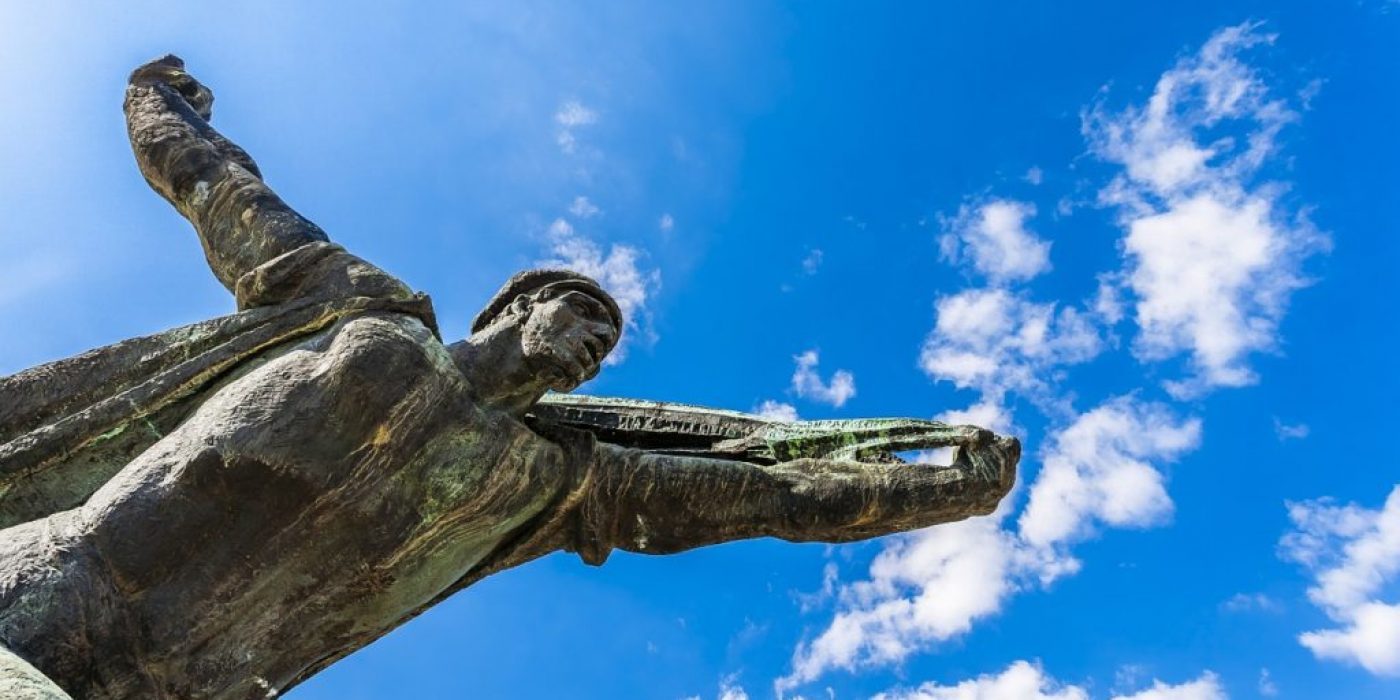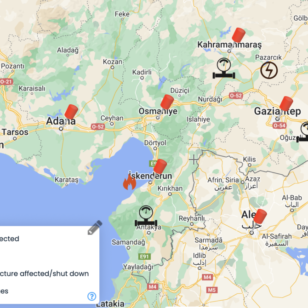Michael Dukakis, former Governor of Massachusetts, who was nominated by the Democratic Party for US president in the 1988 election, but lost to the Republican candidate, then Vice President George H. W. Bush, talked to Kostis Geropoulos in an exclusive interview on September 1 about Donald Trump vs. Hillary Clinton, relations between the United States, the European Union and Russia, the conflict in Syria, immigration, the battle with the so-called Islamic State (ISIS), Brexit, the future of the EU and Russian President Vladimir Putin.
The longest-serving governor in Massachusetts history and only the second Greek American governor in US history, Dukakis, now 82, was invited by the Delphi Economic Forum to visit Greece, meet with the political leadership of the country and give a speech. In the interview first published in New Europe, Dukakis said Trump is unpredictable while Clinton will be consistently pro-Europe.
A smooth-talking politician, Dukakis called the European Union “a remarkable, historic development in a part of the world which has been conflict-ridden for centuries,” noting that the US has to keep working on these relationships and “making sure that we deal with them peacefully and effectively, including Russia”.
Dukakis stressed, “Going back to the Cold War is unacceptable” and differences with Russia and China do not require “the kind of military response that some people are talking about”.
Dukakis said he believes ISIS will be defeated and blamed the immigration crisis on “a Syrian policy that never made sense from the start”.
He said he is an advocate for a strong United Nations to find a solution, noting that the invasion of Iraq and the Syrian intervention have been disasters and should have been resolved by the UN and “one of the things that we all have to do and especially the US is to make sure that firstly, we are working with the international community and secondly, we understand the consequences of intervening before we intervene”.
Kostis Geropoulos: It seems like the stakes are a lot higher now whether there is going to be a Democratic or Republican president, do you think the outcome of the elections will affect relations with the EU?
Michael Dukakis: Trump is a wild card. I mean nobody has the slightest idea what this guy is going to do, since he tells something different every day. It’s very unpredictable. I think it’s pretty clear that, if Hilary is elected, which we hope she will be, that the US policy is going to be pretty consistently, strongly pro-Europe. But anything goes with Trump. I mean today it’s the wall along the Mexican frontier.
KG: It seems like Europe has all these challenges now, problems with Russia, especially the Eastern European countries like the Baltics, ISIS, the immigration issue, will Hilary carry on the same policy?
MD: Well, look, one of the reasons we have this immigration crisis is because of what I think is a Syrian policy that never made sense from the start. We’re strongly for Hilary wanting to win, we think Trump would be a disaster but US interventions here, there and everywhere is causing a lot of problems. First, the invasion of Iraq, then the Syrian intervention, which has been absolute disaster and which could have been resolved and was in the process of being resolved by the UN way back at the beginning. And one of the things that we all have to do, and especially the US, is to make sure that firstly, we are working with the international community and secondly, we understand the consequences of intervening before we intervene.
KG: Is there room for Russia to find a solution?
MD: Sure. Look, we’re going to have differences with Russia, we’re going to have differences with China but none of them require the kind of military response that some people are talking about. You know, we’re going to have differences – okay, that’s in the nature of things.
But, I’m a very strong believer in a strong UN and strong UN constituency agencies that do what, for example, what the Security Council was able to do in contributing into the Iranian nuclear agreement. That’s they way the system ought to work, not tossing troops here and some place and getting mad at some place. From my generation that lived through the entire Cold War, the notion of going back to the Cold War is just unacceptable and there’s no reason for it. There will be differences; you try to work them out. I don’t think we have to be shoving NATO right up against Russia’s borders.
KG: Do you think ISIS is going to be defeated?
MD: Oh yeah, it’s going to be defeated because established governments don’t like terrorists and it’s in the process of being defeated. But, we’ve got to do more than that and I don’t care if it’s Russia or China or whoever, these are countries with whom we have to work, we have got to negotiate and I’m fairly confident that we can do that. The only wild card out there is the guy in North Korea, who you know is… but if we’re gonna deal with that, it’s important that the Russians and the Chinese be involved in dealing with North Korea. And those relationships are important.
KG: How about Brexit? Do you think it’s a game changer?
MD: I don’t think it’s a game changer. I think it’s unfortunate and I think a lot of Brits are having regrets these days. But, you know, the UK is still going to be part of Europe, even if it’s not a formal part of it, then they’re going to have to work out this relationship.
KG: It looks like Europe is in crisis, a political crisis, there is a disjointed policy. Do you think there is a future for Europe?
MD: Sure, yeah. Look, the EU is a remarkable, historic development in a part of the world, which has been conflict-ridden for centuries and we just gonna have to keep working on these relationships and making sure that we deal with them peacefully and effectively and I think we can do that. People say to me: “What’re we gonna do with Putin?” And I say: “He’s not my candidate for Peace Prize, but he’s a hell of a lot better than Joe Stalin (laughs) so you work with him.”
Initially published on New Europe.



